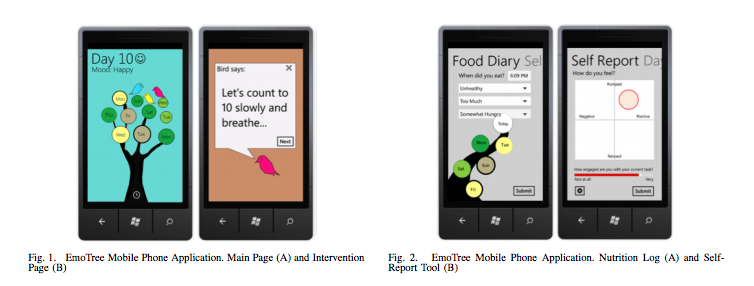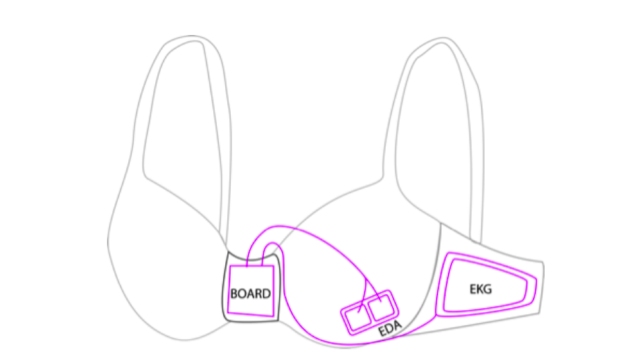Don’t worry, emotional overeaters; your future is bright, sort of. Thanks to a collaborative study between the Microsoft Research Institute and the University of Rochester, a new, emotional-stress-detecting bra and mobile app duo may soon be giving your already fragile emotional state the extra guilt it needs to finally put the fork down.
Travel with us, if you will, to a kitchen that exists in a time not too far from today. A sad woman (let’s call her Cici) sits on the floor, shoveling ice cream into her face. There’s no spoon, mind you — Cici has no time for a middle man — there’s just her cold, sticky hands and a hole in her heart that no amount of Rocky Road will ever fill. But that doesn’t stop Cici from trying. Suddenly, she feels a vibration in her pocket. Is it Him? Has He come to His senses? He has not. She looks down excitedly only to find the words “Stop it. You are doing this to yourself.” Friends, welcome to the future of dieting.

Initially, the team set out to create a form of wearable tech that would help stop stress-related overeating. As you can see in the diagram, the bra holds the EKG sensor near the heart, so whenever the readings reach levels indicative stress, the bra sends a message through the mobile app (dubbed EmoTree, because why not), warning you might be at risk of overeating. In other words: Shut it down, fatty. And according to the newly released report, it seems to actually be doing the job:
We found some initial results that suggested providing awareness and just-in-time support for emotional eating could work with better personalisation on timing and intervention. To move towards the goal of a personalised, integrated system, this study was focused on investigating the feasibility of using physiological sensors to implicitly detect emotions. While implicit emotion detection has been done in the past, this is the first study, that we are aware of, that makes use of wearable, mobile sensors for detecting emotions.
These illustrious innovators conducted test on males, too. But that one didn’t work so well considering they stuck the EKG sensor in a pair of underwear, which (whoulda guessed?) isn’t actually anywhere near the heart. Why the research team couldn’t come up with some sort of gender-neutral harness remains a mystery, but while men may have to wait a bit longer to actually feel worse about themselves, Cici and co. are well on their way to getting kicked by their phones when they’re already down. Exciting times we live in. [BBC]
